Scroll to:
Maternal death in world literature
https://doi.org/10.17749/2313-7347/ob.gyn.rep.2024.523
Abstract
The article highlights issues aimed at maternal death in literature. The literary works of Tolstoy, Turgenev, Bunin, Rabelais, Martin, Pushkin, Mann, etc., are discussed.
For citations:
Makatsariya N.A. Maternal death in world literature. Obstetrics, Gynecology and Reproduction. 2024;18(3):437-442. https://doi.org/10.17749/2313-7347/ob.gyn.rep.2024.523
Introduction / Введение
The theme of a woman's death during childbirth occupies a significant place in world literature, reflecting many aspects of culture, medicine and social norms. Literary works raise important questions about medical practices, socio-cultural attitudes and the role of women in society. In ancient myths and epics, the death of a woman in childbirth is often associated with divine punishment or fate. In nineteenth and twentieth century novels, the heroine's death in childbirth reflects the social norms and expectations of women at the time. Historically, lack of access to adequate medical care and socio-cultural attitudes may have significantly increased the risk of death in childbirth. These aspects are reflected in the literature and have led to important debates about women's rights and medical ethics. Exploring the theme of women dying in childbirth in the world literature allows us to better understand the historical and cultural factors that shape our perceptions of childbirth and women's health, and highlights the need for improved medical care and the empowerment of women in society.
Death of a mother during childbirth in fairy tales / Гибель матери в родах в сказках
In various fairy tales and myths from ancient civilizations, the occurrence of a woman dying during childbirth is a prevalent motif. These traditional narratives often revolve around a hero or heroine who loses their mother during childbirth, leading them to grow up as an orphan or under the guardianship of other relatives. This event plays a pivotal role in advancing the storyline and shaping the protagonist's character. The maternal death in childbirth functions as a compelling literary tool, adding dramatic tension and emotional complexity to the narrative. It enables writers and storytellers to delve into themes of grief, solitude, resilience, and the quest for genuine family connections or a place to call home. One instance of such a fairy tale is "Snow White and the Seven Dwarfs" (Brothers Grimm, 1812): «Soon afterward she had a little daughter who was as white as snow, as red as blood, and as black as ebony wood, and therefore they called her Little Snow-White. And as soon as the child was born, the queen died» [1].
Another similar story took place in A.S. Pushkin's fairy tale-poem "The Tale of the Dead Princess and the Seven Knights" (1833) (Translated by Peter Tempest) [2]:
«Then from God on Christmas Eve
She a daughter did receive.
Next day early in the morning,
Love and loyalty rewarding,
Home again from travel far
Came at last the father-Tsar.
One fond glance at him she darted,
Gasped for joy with thin lips parted,
Then fell back upon her bed
And by prayer-time was dead».
In these stories, the heroines' mothers die and the fathers remarry, bringing a stepmother into the house. This moment becomes the starting point for the many disasters that befall the heroines, but it also helps to emphasize their strength and goodness.
Death of a woman during childbirth in Russian literature / Гибель женщины в родах в русской литературе
The theme of a woman dying in childbirth has long been present in Russian literature and plays an important role in many works. The tragedy of human fate, the struggle against injustice and the inevitability of death are often emphasized through this motif.
One of the most famous examples of such a theme is the novel "War and Peace" (1863–1869, 1873) by Lev Tolstoy (Fig. 1). The death of Liza Bolkonskaya is one of the most touching and important events in this novel. Her death at a young age due to complications in childbirth leaves a sense of grief and loss. Her labor is difficult, and despite the doctor's efforts and the help of her relatives, she dies. Her death is described with particular attention to her condition and emotions. Lisa's death becomes a turning point in the lives of many of the novel's characters. It symbolizes the loss of hope and the unpredictability of death in difficult times of war and social upheaval. This moment emphasizes the vulnerability of human life and draws attention to the theme of the fragility of existence [3]:
«The door opened. The doctor with his shirt sleeves tucked up, without a coat, pale and with a trembling jaw, came out of the room. Prince Andrew turned to him, but the doctor gave him a bewildered look and passed by without a word. A woman rushed out and seeing prince Andrew stopped, hesitating on the threshold. He went into his wife’s room. She was lying dead, in the same position he had seen her five minutes before and, despite the fixed eyes and the pallor of the cheeks, the same expression was on her charming childlike face with its upper lip covered with tiny black hair. In a corner of the room something red and tiny gave a grunt and squealed in Mary Bogdanova’s trembling white hands».
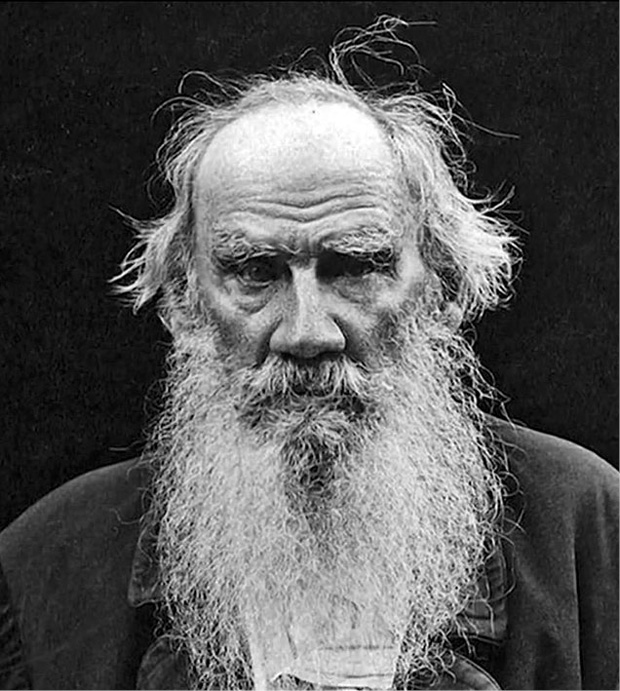
Рисунок 1. Лев Николаевич Толстой (1828–1910).
Figure 1. Lev Nikolaevich Tolstoy (1828–1910).
This episode not only reflects the tragic loss of a particular character, but also serves as a symbol of helplessness in the face of nature, illness and death.
Another example can be found in Ivan Turgenev (Fig. 2) story "First Love" (1860), in which Zinaida Zasekina died [4]:
«Old memories were astir within me…. I determined next day to go to see my former 'flame.' But some business happened to turn up; a week passed, and then another, and when at last I went to the Hotel Demut and asked for Madame Dolsky, I learnt that four days before, she had died, almost suddenly, in childbirth. I felt a sort of stab at my heart. The thought that I might have seen her, and had not seen her, and should never see her – that bitter thought stung me with all the force of overwhelming reproach. 'She is dead!' I repeated, staring stupidly at the hall-porter. I slowly made my way back to the street, and walked on without knowing myself where I was going. All the past swam up and rose at once before me. So this was the solution, this was the goal to which that young, ardent, brilliant life had striven, all haste and agitation! I mused on this; I fancied those dear features, those eyes, those curls – in the narrow box, in the damp underground darkness – lying here, not far from me – while I was still alive, and, maybe, a few paces from my father…. I thought all this; I strained my imagination, and yet all the while the lines: 'From lips indifferent of her death I heard, indifferently I listened to it, too,' were echoing in my heart».
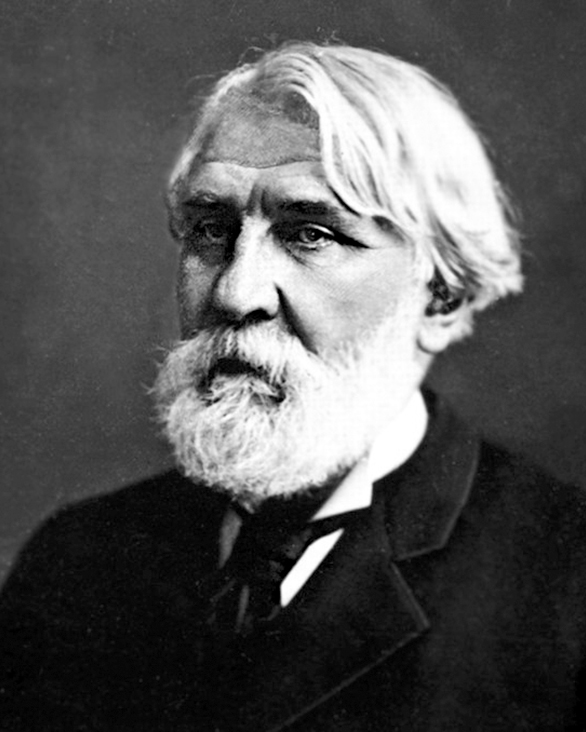
Рисунок 2. Иван Сергеевич Тургенев (1818–1883).
Figure 2. Ivan Sergeevich Turgenev (1818–1883).
In the story "Natalie" (1941) by I.A. Bunin (Fig. 3), a student falls in love with two girls. The one he really loved caught him with a rival, after this she married the another man. Later, when she was widowed, they became lovers with the protagonist, she became pregnant and died in childbirth: «In December she died on Lake Geneva in premature birth» [5].
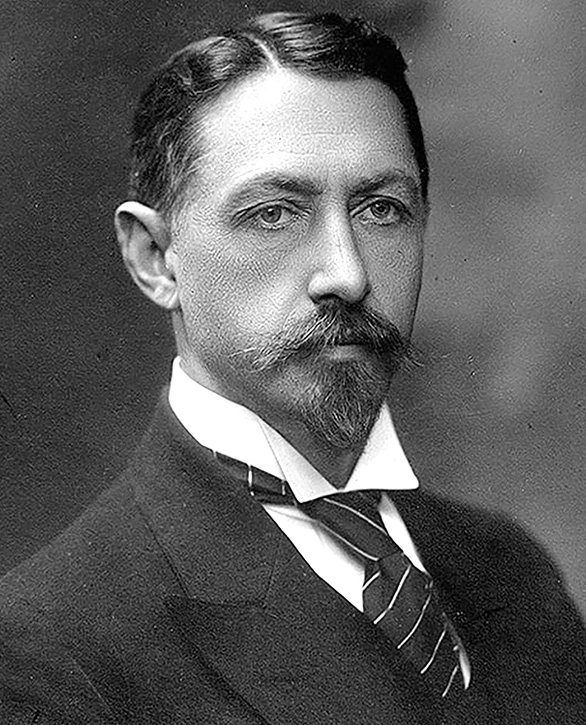
Рисунок 3. Иван Алексеевич Бунин (1870–1953).
Figure 3. Ivan Alekseevich Bunin (1870–1953).
In the adventure novel "Two Captains" by Veniamin Kaverin, the main character's sister, Sanya, married his friend Petya Skovorodnikov. However, she was unable to bear the illness after giving birth and died [6].
In Ludmila Ulitskaya's* novel "The Kazus Kukotsky", Tatiana, the protagonist's daughter, finds herself in a dangerous situation during her second labor. She is forced to give birth in conditions where medical care is inadequate, which makes this moment particularly dangerous. Her story shows how injustice and hopelessness can take a person's life. The protagonist's life and happiness are destroyed by harsh reality. Ulitskaya* uses her novel to discuss important social and humanitarian issues. Tanya's tragic fate stimulates a debate on these issues (translated from Russian by Diane Nemec Ignashev) [7]:
…«Tanya was getting sicker and sicker, and the moment had come when she herself began to get scared. She discovered a black-and-blue mark on her left forearm, and a similar bruise on her side. The back of her head continued to throb. Her belly hurt with an unusual burning metallic pain. Nurses came and took her temperature, felt her belly, and measured her blood pressure… Her temperature was normal. Tanya felt worse and worse; on the third day she decided to summon her father…
…Sergei did not see Tanya alive again. Nor did Pavel Alekseevich. He arrived from the dacha and found two telegrams stuffed in the door: one from Sergei with a request that he come; the second, written two days later, with the notarized signature of the chief physician, informing him of the death of Tatiana Pavlovna Kukotskaya…
…With a single glance Doctor Kukotsky had determined that over the first two days following admission to the hospital no diagnosis had been made and no treatment administered, that the required tests had been done too late, that pregnancy had only made the situation worse… and that he would have been able to save his little girl, had he arrived from the dacha not on Tuesday, but on Friday…
…– The quantity of blunders, errors, and medical crimes exceeds all bounds. A patient with a communicable infection was placed in the pathology ward. No biochemical blood tests or bacteriological analyses were performed. No diagnosis was made. I am assuming that what we have here is Weil’s disease, Morbus Weili. If it is leptospirosis, then immediate measures need to be taken.…
…– Focal degeneration with hemorrhaging in the muscles, petechiae. The patient’s records correspond to nothing. There was toxicosis. Intravenous infusions, indicated here, were not administered. I examined the veins… I am left to conclude that no treatment whatsoever was given. But that’s not the issue right now. Your maternity hospital is infected with hepatitis».
In F.M. Dostoyevsky (Fig. 4) last novel, "The Brothers Karamazov" (1880), the madwoman of the town gives birth to a child who stays with the elder Karamazov and serves him. It is also Smerdyakov who confesses to the murder of Karamazov. «They saved the baby, but Lizaveta died at dawn. Grigory took the baby, brought it home, and making his wife sit down, put it on her lap» [8].
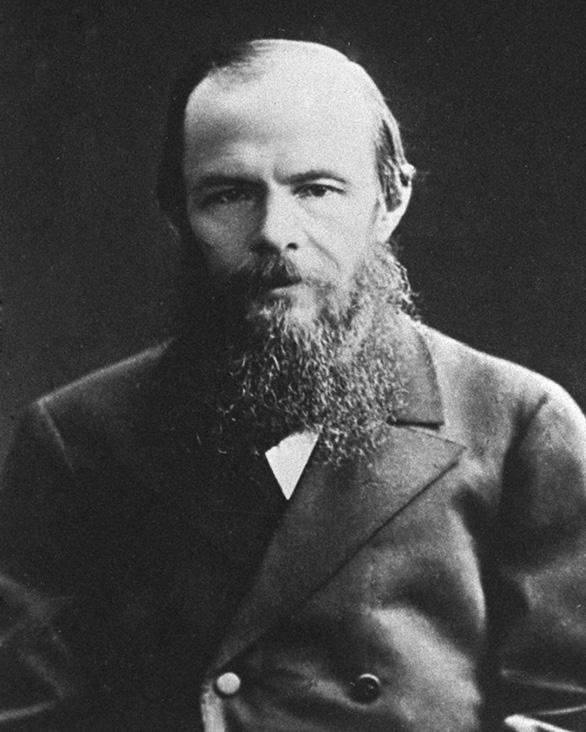
Рисунок 4. Федор Михайлович Достоевский (1821–1881).
Figure 4. Fyodor Mikhailovich Dostoyevsky (1821–1881).
In Dmitry Lipskerov's novel "Leonid will definitely die", Leonid's mother died in childbirth [9]:
«This place is a hustle and bustle. They worked in step. Three or four of them moved the unconscious woman in labor onto a stretcher and carried her as quickly as possible to the elevator... And then into the operating room. She regained consciousness only briefly, heard the word "caesarean section" and let her consciousness go on an unknown journey under general anesthesia... In this way, God wanted her consciousness to never return to her luxurious body. The anesthesia was as contraindicated for Yulka as potassium cyanide is for all living beings. She was revived for nearly two hours and lay after the agony of peace and bright countenance. Her body had been opened transversely, and after the baby was taken out of the opened womb, even a slight vapor came out. One thought to oneself that the image looked like a pacified volcano... However, Yulka had done her job».
These works explore the emotional impact of a woman's death in childbirth on characters and their relationships. They often touch on themes of loss, grief and resilience.
Death of a woman during childbirth in foreign literature / Гибель женщины в родах в зарубежной литературе
In the "The Song of Ice and Fire" by George R.R. Martin the death of Tyrion Lannister's mother, Joanna Lannister, occurred before the events in the book began. She died from complications that arose during his birth. She left Tyrion with physical defects and forever affected his relationship with his father and family. For Tyrion, the loss of his mother was an important moment in his life that shaped his character and his view of the world around him [10].
In "Gargantua and Pantagruel", François Rabelais (Fig. 5) describes the death of Pantagruel's mother: «…because he was marvelously huge and so heavy that he could not come to light without suffocating his mother». The child was so big that his mother died giving birth. He was born during a drought, so he was named Pantagruel ("panta" means "all" in Greek, and "gruel" means "thirsty" in the Agarian language). Gargantua was sad when his wife died, but then he decided: "We must cry less and drink more!" He occupied himself with the upbringing of his son, who was so strong that he tore a bear to pieces when he was still in the cradle [11].
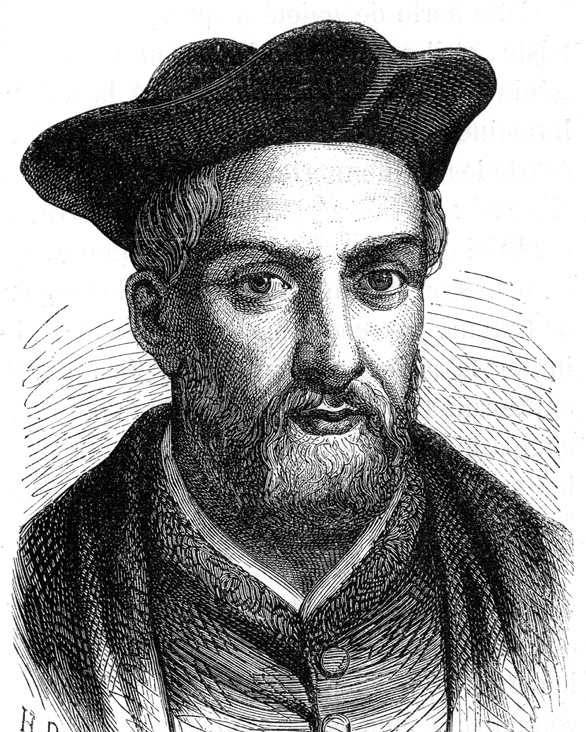
Рисунок 5. Франсуа Рабле (1494–1553).
Figure 5. François Rabelais (1494–1553).
In the novel "A Farewell to Arms" by Ernest Hemingway (Fig. 6), the death of Catherine after a caesarean section is portrayed as a tragic and emotionally charged moment. Catherine, a woman for whom the protagonist Frederick Henry has complex and deep feelings, suffers a fatal fate during the Italian campaign of the First World War. At the end of the novel, Catherine is pregnant by Frederick and dies in childbirth. This scene is full of emotional tension and deep sorrow for Frederick, who watches helplessly as his beloved suffers. Catherine's death symbolizes the loss, helplessness and futility of war as well as the painful aspects of human destiny and mortality. Hemingway describes this moment with great feeling and depth, emphasizing not only the physical pain and suffering, but also the emotional anguish that the character experiences. Catherine's death plays an important role in shaping the overall mood of the novel, in which the themes of love, loss and war are closely interwoven [12]:
«It seems she had one hemorrhage after another. They couldn’t stop it. I went into the room and stayed with Catherine until she died. She was unconscious all the time, and it did not take her very long to die».
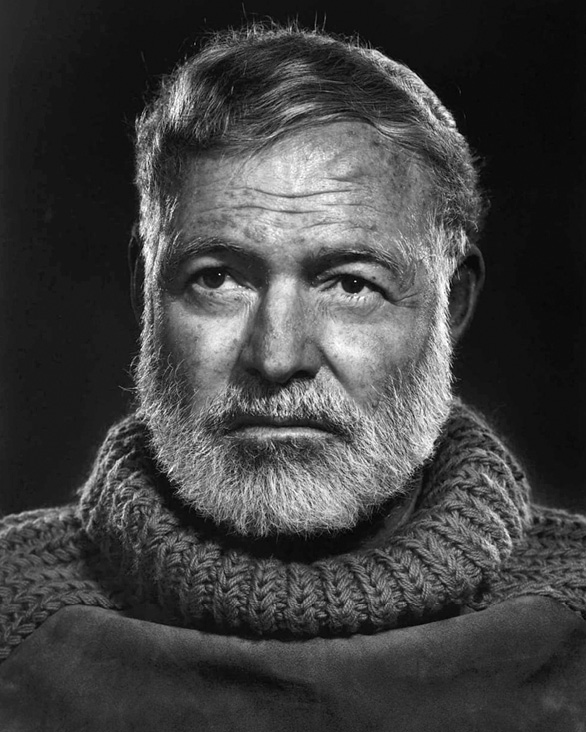
Рисунок 6. Эрнест Миллер Хемингуэй (1899–1961).
Figure 6. Ernest Miller Hemingway (1899–1961).
In "The Adventures of Oliver Twist" (1887–1889) by Charles Dickens (Fig. 7), the mother of the novel's protagonist is part of Oliver's tragic story. She gave birth to him in a London orphanage for the poor. She died in loneliness and terrible hardship. His mother's death is the beginning of Oliver's journey to find his place in the cruel world of the nineteenth century and to unravel the mystery of his origins [13]:
«Apparently this consolatory perspective of a mother’s prospects failed in producing its due effect. The patient shook her head, and stretched out her hand towards the child.The surgeon deposited it in her arms. She imprinted her cold white lips passionately on its forehead; passed her hands over her face; gazed wildly round; shuddered; fell back – and died. They chafed her breast, hands, and temples; but the blood had stopped forever. They talked of hope and comfort. They had been strangers too long».
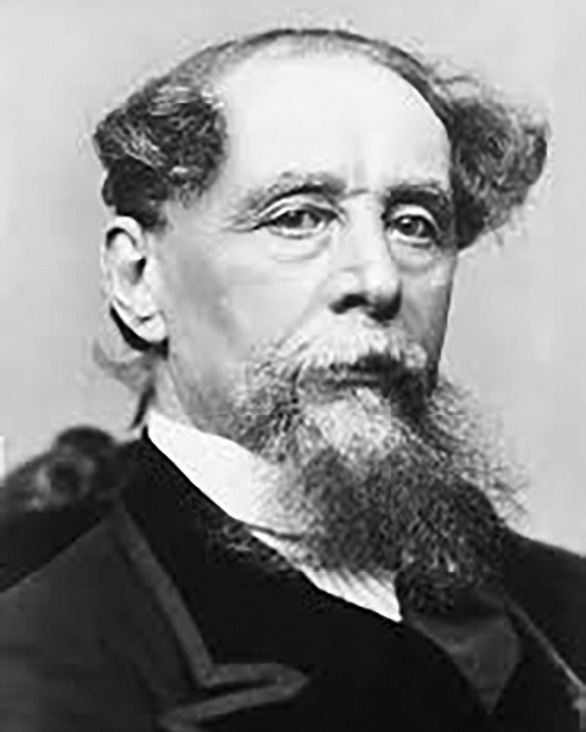
Рисунок 7. Чарльз Джон Хаффем Диккенс (1812–1870).
Figure 7. Charles John Huffam Dickens (1812–1870).
In Jules Verne's adventure novel "In Search of the Shipwrecked", the captain's wife dies during the birth of their son Robert: «Mary and Robert were the captain’s only children. Harry Grant lost his wife when Robert was born, and during his long voyages he left his little ones in charge of his cousin, a good old lady» [14].
In "А Little Princess", a children's novel by the English writer Frances Burnett, the main character's mother dies in childbirth: «Her mother had died when she was born, so she had never known or missed her. Her young, handsome, rich, petting father seemed to be the only relation she had in the world» [15].
The death of Amir's mother in the novel "Running After the Wind" by Khaled Hosseini is one of the key moments that significantly influence the life and fate of the protagonist. In the book, Amir's mother dies giving birth to a child [16].
The death of Rachel, a character in Thomas Mann (Fig. 8) "Joseph and His Brothers", is one of the most tragic moments in the story. Rachel was Jacob's favorite wife, the mother of his children Joseph and Benjamin. In the novel, Rachel dies during the birth of their second son Benjamin. By describing this scene, Mann creates an atmosphere of deep sadness and loss. Rachel, suffering from labor pains, realizes that her time has come and she is dying as she gives life to her son. This moment is described with great emotional power and emphasizes how painful the loss is for Jacob and his entire family. Rachel's death also has symbolic significance in the novel, as it stands for loss and grief in the context of the complex relationships between the family members. Her death becomes one of the turning points in the plot and has a profound impact on the further development of events and on the characters, especially Jacob and his sons [17].
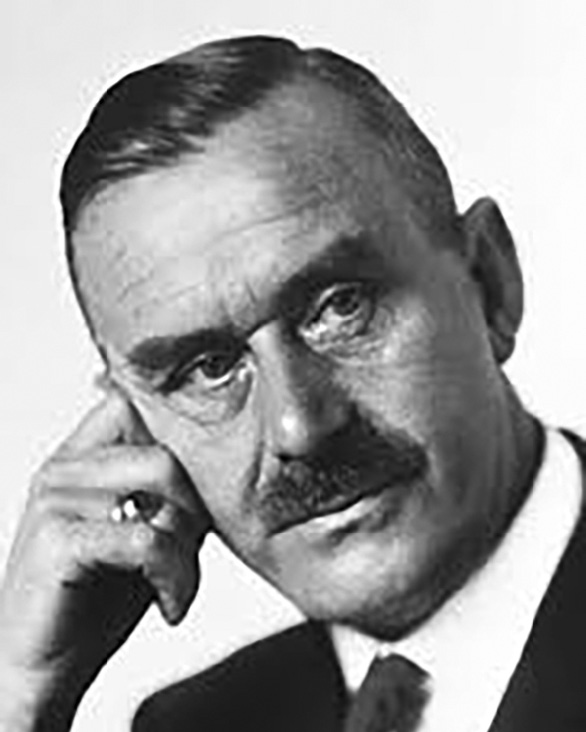
Рисунок 8. Пауль Томас Манн (1875–1955).
Figure 8. Paul Thomas Mann (1875–1955).
The death of Catherine Earnshaw in the novel "Wuthering Heights" by Emily Bronte is one of the most important moments in the story, symbolizing complex emotions, passions and destruction. Сatherine dies after giving birth to a child. Her death is both a tragic and liberating moment that concludes her agonizing struggle with her own passions and inner conflicts. Catherine's death is also a symbol of her liberation from torment and suffering. She dies young and beautiful, having retained her passion and spiritual independence despite all the trials she has had to endure in her life. Her death not only marks the end of her personal story, but also a new beginning for the other characters and the development of the novel's plot [18].
These novels address the theme of a woman's death during childbirth and its impact on the plot and characters, and offer a variety of approaches to this theme. Overall, the death of the mother plays an important role in Russian literature. It helps authors and readers to recognize the fragility of human existence and its unpredictability before the elements of life and death. The theme of a woman's death in childbirth helps to express metaphysical and philosophical reflections on life, death, love and loss.
Conclusion / Заключение
The death of a woman in childbirth remains a hot topic in world literature, reflecting complex socio-cultural and medical aspects. Exploring this topic allows us to better understand history and culture, and raises important debates about healthcare and social justice.
*A foreign agent in Russia.
References
1. Grimm Y., Grimm V. Snow White and the Seven Dwarfs. [Belosnezhka i sem' gnomov]. Moscow: Enas-kniga, 2017. 30 p. (In Russ.).
2. Pushkin A.S. The tale of the dead princess and the seven knights. [Skazka o mertvoj carevne i o semi bogatyryah]. Moscow: Prospekt, 2023. 24 p. (In Russ.).
3. Tolstoy L.N. War and peace. In 4 volumes. [Vojna i mir. V 4 tomah]. Moscow: Galereya klassiki, 2022. (In Russ.).
4. Turgenev I.S. Asya. First love. Spring waters. Nobles' Nest. [Asya. Pervaya lyubov'. Veshnie vody. Dvoryanskoe gnezdo]. Moscow: Rech', 2017. 368 p. (In Russ.).
5. Bunin I.A. Dark alleys. In Paris. Natalie. [Temnye allei. V Parizhe. Natali]. Moscow: AST, 2011. 349 p. (In Russ.).
6. Kaverin V.A. Two captains. [Dva kapitana]. Moscow: Nigma, 2024. 720 p. (In Russ.).
7. Ulitskaya L.E.* The Kukotsky case. [Kazus Kukockogo]. Moscow: AST, 2012. 512 p. (In Russ.).
8. Dostoevsky F.M. The Brothers Karamazov. [Brat'ya Karamazovy. V 2 tomah]. Moscow: Rech', 2017.
9. Lipskerov D.M. Leonid will definitely die. [Leonid obyazatel'no umret]. Moscow: AST, 2016. 480 p. (In Russ.).
10. George R.R. Martin. Song of Ice and Fire. Game of Thrones [Pesn' l'da i plameni. Igra prestolov]. Moscow: AST, 2017. 768 p. (In Russ.).
11. Rabelais F. Gargantua and Pantagruel. [Gargantyua i Pantagryuel']. Moscow: AST, 2022. 832 p. (In Russ.).
12. Hemingway E.M. A Farewell to Arms! [Proshchaj, oruzhie!]. Moscow: AST, 2020. 352 p. (In Russ.).
13. Dickens Ch. The Adventures of Oliver Twist. [Priklyucheniya Olivera Tvista]. Moscow: Kacheli, 2022. 416 p. (In Russ.).
14. Verne J.G. The Children of Captain Grant. [Deti kapitana Granta]. Moscow: Al'fa-kniga, 2020. 571 p. (In Russ.).
15. Burnett F.H. A Little Princess. [Malen'kaya princessa]. Moscow: Strekoza, 2020. 272 p. (In Russ.).
16. Hosseini Kh. The Kite Runner. [Begushchij za vetrom]. Moscow: Fantom Press, 2021. 416 p. (In Russ.).
17. Mann T.P. Joseph and his brothers. [Iosif i ego brat'ya]. Moscow: AST, 2023. 1440 p. (In Russ.).
18. Bronte E.D. Wuthering Heights. [Grozovoj pereval]. Moscow: Kacheli, 2021. 400 p. (In Russ.).
About the Author
N. A. MakatsariyaRussian Federation
Nataliya A. Makatsariya – MD, PhD, Associate Professor, Department of Obstetrics, Gynecology and Perinatal Medicine, Filatov Clinical Institute of Children's Health
Researcher ID: F-8406-2017
2 bldg. 4, Bolshaya Pirogovskaya Str., Moscow 119991
Review
For citations:
Makatsariya N.A. Maternal death in world literature. Obstetrics, Gynecology and Reproduction. 2024;18(3):437-442. https://doi.org/10.17749/2313-7347/ob.gyn.rep.2024.523

This work is licensed under a Creative Commons Attribution-NonCommercial-ShareAlike 4.0 International License.











































